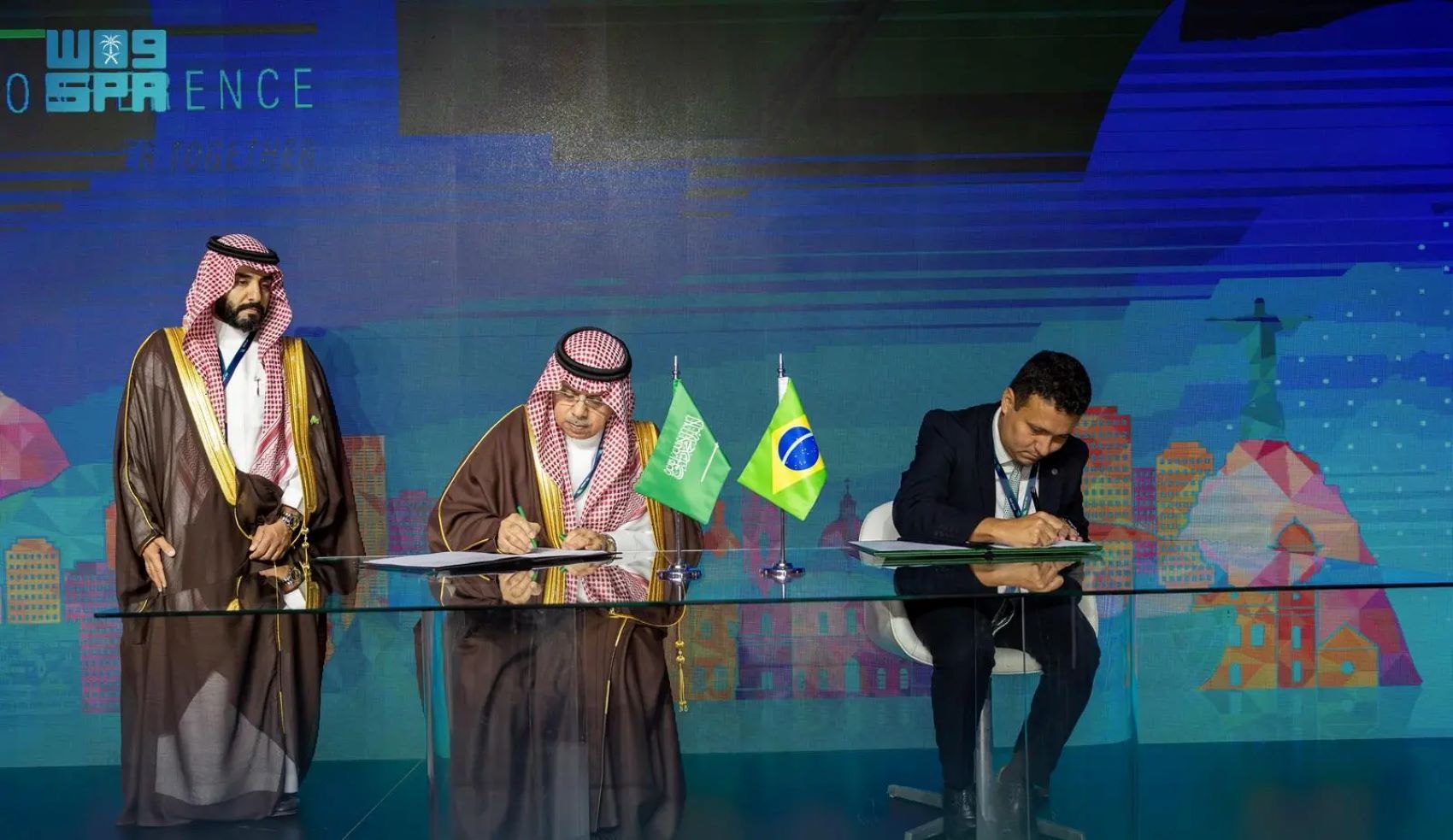RIO DE JANEIRO, BRAZIL – A delegation led by President of the General Authority of Civil Aviation (GACA) Abdulaziz bin Abdullah Al-Duailej has concluded its participation in the Saudi-Brazilian International Aviation Conference held here from October 2 to 4.
Under the theme “Going Further Together”, the conference saw several discussions to build strategic mutual partnerships to expand and strengthen cooperation with the Federal Republic of Brazil represented by the Brazilian National Civil Aviation Agency (ANAC), which hosted the event, a GACA press release said.
Al-Duailej said Saudi Arabia seeks to increase air connectivity to over 250 destinations globally by 2030, as part of its National Aviation Strategy.
The Kingdom also plans on carrying 330 million passengers annually and raising freight capacity to 4.5 million tons by 2030.
Through its participation, the Saudi delegation highlighted the pioneering role of Saudi Arabia in the field of aviation.
The Saudi delegation deliberated on the opportunities available to enhance air travel services and agreements, and improving economic cooperation between the Kingdom and Latin American countries.
On the sidelines of the conference, Al-Duailej held several bilateral meetings with Chief of Staff of the Presidency of the Republic of Brazil Rui Costa and a number of ministers and officials, reviewing opportunities to enhance cooperation in air connectivity.
According to the release, several agreements of cooperation and MoUs were signed at the conference, including an agreement for air connectivity services between GACA and the Civil Aviation Council of the Dominican Republic.
Two MoUs were signed for air transport services with Ambassador Extraordinary and Plenipotentiary of the Republic of Suriname Angeladibi Ramkeesoen and Director General of the Civil Aviation Directorate of the Republic of Costa Rica Fernando Naranjo Elizondo.
The aviation sector has the support and attention of the leadership of the Kingdom for major development initiatives aimed at enhancing and expanding its capacity as a primary sector in the Middle East region.







